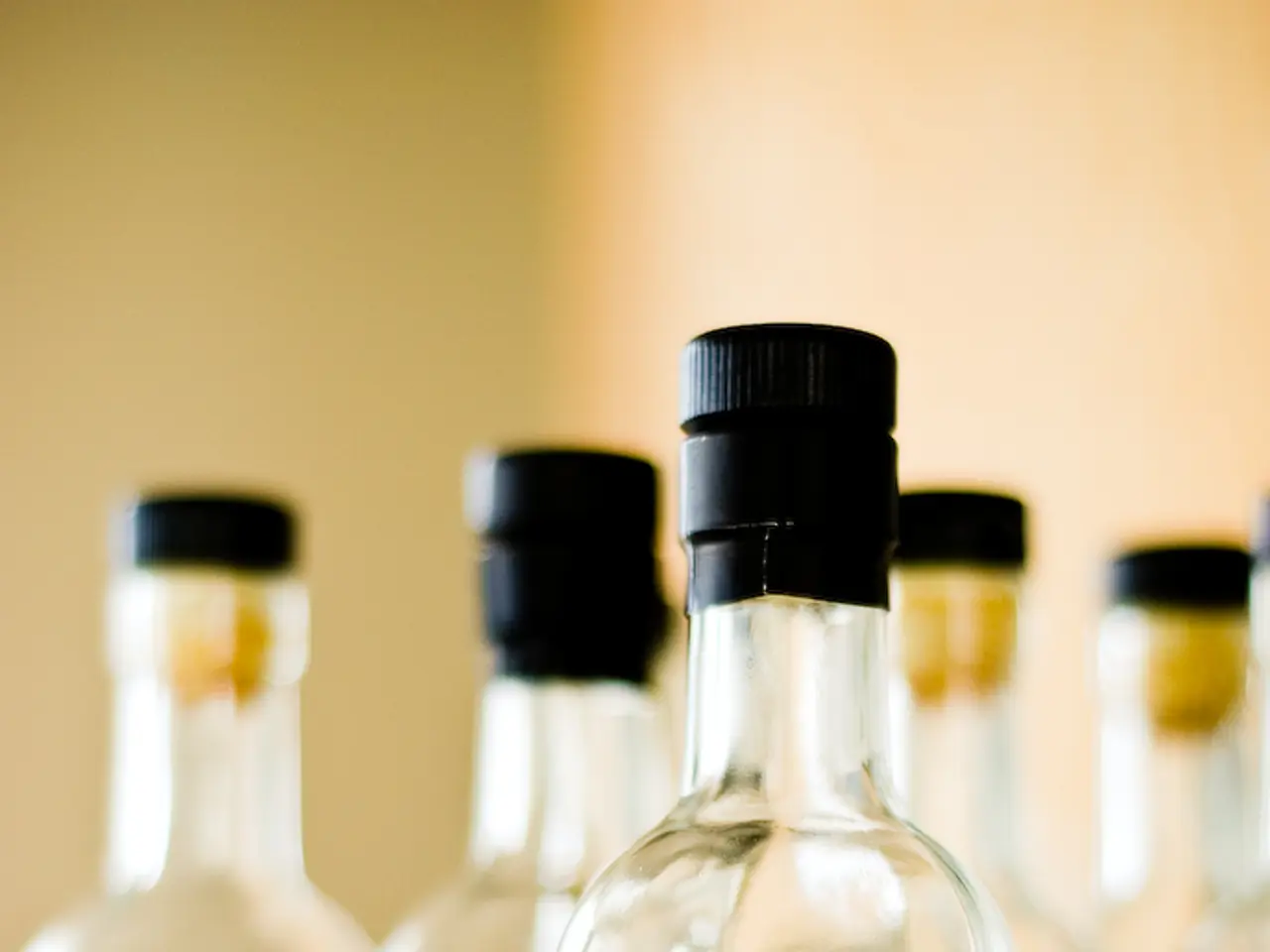The Cause of Waking up with a Headache after Drinking Alcohol: Explanation of the Mysterious Phenomenon of Hangovers based on Scientific Evidence
In the realm of social gatherings and celebrations, alcohol is often the centre of attention. However, it's essential to remember that our bodies are not well-adapted to alcohol consumption, and it remains toxic. After a night of indulgence, many find themselves grappling with the unpleasant symptoms of a hangover. This article explores the physiological effects of alcohol and offers strategies to alleviate these symptoms.
The liver, our body's primary detoxifier, is responsible for breaking down alcohol into acetaldehyde and then acetate, both still toxic compounds for our bodies. Alcohol disrupts blood sugar levels, neurotransmitter secretion, and triggers an inflammatory response, contributing to headaches and other hangover symptoms.
Fortunately, there are foods and medicines scientifically proven to help alleviate hangover symptoms and prevent liver damage. These include electrolyte-rich fluids, such as water with sodium, potassium, and magnesium, which help rehydrate and restore mineral balance, significantly reducing hangover severity.
Antioxidants, like vitamin C, vitamin E, and glutathione, combat the oxidative stress caused by alcohol metabolism, aiding liver detoxification. Liver support supplements, such as milk thistle and N-acetylcysteine (NAC), promote detox processes and protect liver cells from damage.
B vitamins (B6, B9, B12) support both liver function and cognitive clarity during hangovers. Natural anti-inflammatory compounds, such as turmeric and ginger, may reduce inflammation associated with hangover symptoms. L-Theanine, an amino acid found in green tea, may protect the liver when taken before drinking and improve cognitive function the next day.
Some hangover products, like South Korea’s CONDITION, are formulated with patented blends including oriental raisin tree fruit, milk thistle, and artichoke, with human studies supporting their efficacy. Interestingly, a study from Sun Yat-Sen University suggested that Sprite might help break down acetaldehyde, a toxic alcohol metabolite contributing to hangover severity. However, this is less established compared to direct antioxidant or liver-supporting agents.
While there is no single “cure” for hangovers, these foods and medicines have solid scientific backing to alleviate symptoms and help prevent liver damage. They function by counteracting oxidative stress, supporting liver metabolism, replenishing depleted nutrients, and reducing inflammation. Natural nootropics like L-Theanine may add liver protection and cognitive benefits. Some specific hangover remedies have validated formulations backed by clinical studies, such as CONDITION.
It's crucial to remember that these strategies aim to alleviate symptoms, not prevent alcohol consumption. Hangovers, also known as veisalgia, have been around for at least 10 million years. A light diet can help ease liver strain, and rehydrating with herbal teas aids recovery but may not significantly alleviate headaches.
In less severe but more common cases of "moderate excess," alcohol stimulates dopamine secretion in the brain, causing initial euphoria before sedative effects induce drowsiness. Upon ingestion, alcohol quickly passes from the stomach to the intestines and into the bloodstream. Alcohol affects all organs, including the brain and liver.
Avoid treating hangover symptoms with more alcohol, as it worsens matters in the long run. Restless sleep followed by waking up with a painful reminder of overindulgence is a common effect of moderate alcohol excess. Sulfites and histamines found in certain wines may cause sensitivity in some people, but they are not the primary cause of hangovers.
Caution should be exercised when using medications marketed for hangover relief, as some may pose hepatotoxic risks and should be used with caution. Over-the-counter pain relief medications like paracetamol or ibuprofen can help manage symptoms, but they do not address the underlying causes of hangovers.
In conclusion, understanding the physiological effects of alcohol and employing strategies to alleviate hangover symptoms can lead to a more enjoyable social experience. By rehydrating with electrolytes, antioxidant supplementation, liver-support compounds, and B vitamins, we can counteract the harmful effects of alcohol and promote a smoother recovery.
- The destructive impact of alcohol doesn't just stop at causing a hangover; it affects various organs, including the brain and liver.
- Science and technology have come up with several solutions to help alleviate hangover symptoms and protect liver health, including antioxidants, liver support supplements, and natural nootropics.
- Mental health and overall health-and-wellness can be impacted by alcohol consumption, as poor sleep and headaches caused by hangovers can lead to impaired cognitive function.




